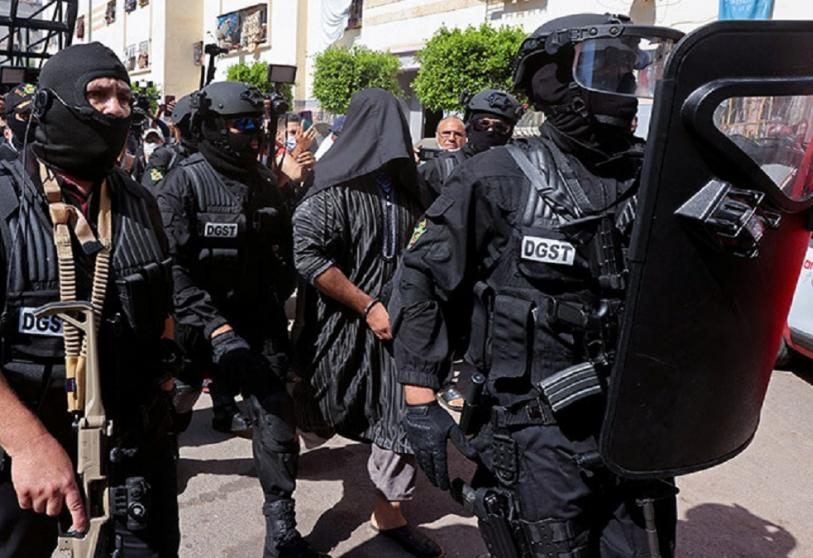Moroccan security forces carried out a multiple and coordinated anti-terrorist operation in ten cities in the country
A new successful operation by Moroccan security forces. This time, the Moroccan anti-terrorist services arrested 13 suspected jihadists linked to Daesh in several interventions carried out in ten cities in the North African country.
The alleged jihadists planned to attack public buildings and the infrastructure of the Moroccan security forces themselves. They have now been brought before the courts while the Public Prosecutor’s Office investigates more about their background, plans and links with certain jihadist groups or elements, as reported by the EFE news agency.
According to an official statement from the General Directorate of Territorial Surveillance (DGST), the operation was a success and was carried out simultaneously in the cities of Casablanca, Mohammedia, Temara, Beni Mellal, Jenifra, Tiflet, Tangier, Alcazarquivir, Berkán and Rissani.
The official note also indicated that the detainees, aged between 19 and 49, were involved in plans to sabotage “sensitive national installations” and attack state security forces and bodies. According to a security source consulted by EFE, those arrested are not all part of the same group.
The official note explained that, according to preliminary investigations, they had already begun to monitor and collect information on the targets of their future attacks, as well as gathering information to learn how to make bombs. During searches of the suspects’ homes, the Moroccan forces seized computer equipment and books on terrorism.
The official communiqué also stated that the detainees have suspicious relations with terrorist elements outside Morocco with the aim of coordinating their “incorporation into the ranks of Daesh, especially in the Sahel region”. In fact, Daesh has a strong presence in the Sahel region and leads a network of active delegations in various continents, each with autonomy of action and adapting to the peculiarities of each area of action. Daesh operates as a decentralised network of armed groups that are linked to a leadership that exercises power globally, although the various branches are largely autonomous. Since the fall of the caliphate in Syria and Iraq, Daesh has focused its activity in various areas such as the Sahel, Central and East Africa, North Africa, Afghanistan and Southeast Asia, taking advantage of unstable situations in various areas and national crises in different countries with a significant Muslim presence in order to attract followers to the radical theses of Jihadism.
In this sense, instability in Africa has become an important opportunity for Jihadist groups such as Daesh or al-Qaeda, which take advantage of the difficult situations in certain areas to spread their radicalism.
Here, Morocco plays a very important role because it is a reliable partner in the fight against jihadist terrorism. Countries such as Spain and the United States have shown their willingness to cooperate with Morocco in security and defence matters due to the effectiveness of its security forces and the General Directorate of Territorial Surveillance and the Central Bureau of Judicial Investigation (BCIJ), which reports to the DGST.
For example, Moroccan and US intelligence officials met in April to further strengthen cooperation on counterterrorism, with the main objective of curbing jihadist activity in the Sahel. The Director of the Central Intelligence Agency (CIA), William Burns, met with the Director of Territorial Surveillance, Abdellatif Hammouchi, in his office in Rabat. The meeting between the Alawi and US national security officials was attended by associates from both sides and Puneet Talwar, the US ambassador to Morocco.
In the face of the terrorist threat in North Africa, risks and challenges emanating from regions such as the Sahel are being addressed. The anti-terrorist cooperation efforts of the various countries involved, including those in Africa themselves, are mainly based on monitoring and surveillance of the activities of these jihadist organisations in order to anticipate their plans, which has already saved an incalculable number of lives, as in the case of the latest arrest of 13 suspected jihadists in ten Moroccan cities.

